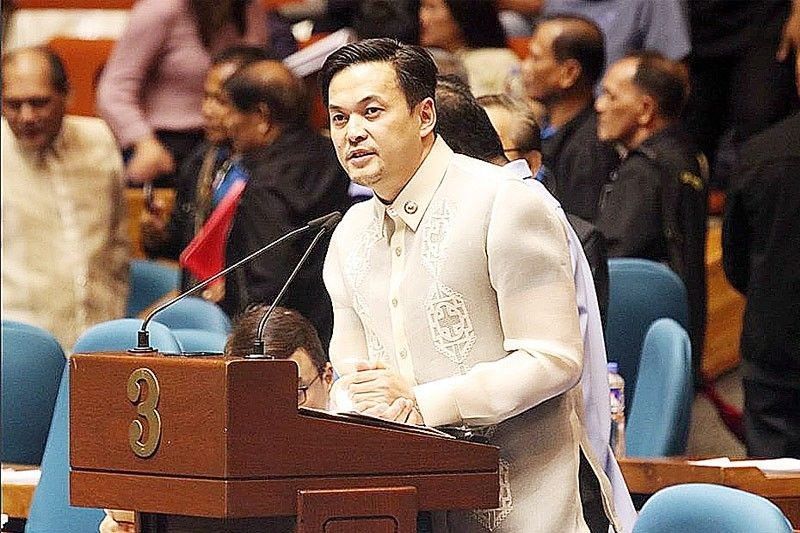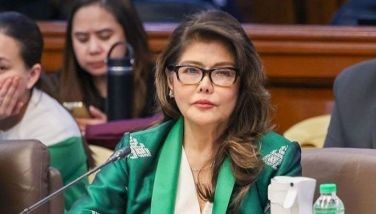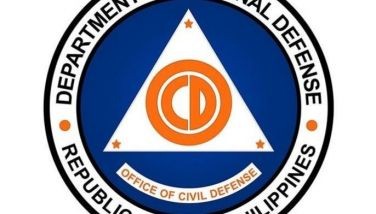House leaders laud enactment of additional pandemic response measure

MANILA, Philippines — House leaders yesterday lauded President Duterte for the timely enactment of additional measures in response to the COVID-19 pandemic.
Deputy Speakers Mikee Romero and Rufus Rodriguez particularly cited Republic Act (RA) 11509 or the Doktor Para Sa Bayan Act, which provides scholarships for aspiring doctors.
They said the measure, signed by Duterte recently, would help boost the country’s public health system by increasing the number of doctors.
“We thank President Duterte for signing this law that will benefit our nation, especially now that we need more doctors while facing the coronavirus pandemic,” stressed Romero, author of the measure in the House of Representatives.
The 1-Pacman party list congressman explained that RA 11509 will provide scholarships at medical schools to qualified students.
He stressed that the country will benefit from the measure since the law requires scholars to serve in the public health and medical service system for a number of years after passing the physician licensure examination.
Rodriguez, also an author of the measure, explained that the law will result in having doctors in remote towns in the country.
“We are hoping that Republic Act No. 11509, which President Duterte signed last Dec. 23, will entice poor students in the provinces to pursue medical education through the program and eventually serve their community,” he stressed.
The Cagayan de Oro congressman said the program is the answer to the problem of students from poor families who want to have a medical degree but cannot afford its high cost.
“It is also the answer to our lack of doctors in remote areas in the provinces, where many of the sick die without being attended to by a physician,” he added.
He explained that under the law, each town in the country should have at least one qualified applicant in the medical scholarship and return service program.
In case there is no qualified student from a particular town, its slot may be given to an applicant from a nearby municipality.
Under the return service program, the new doctor-program beneficiary is required to render service in his town for one year for every year of his doctor of medicine degree, Rodriguez said.
In the case of a graduate who took the slot of a particular town, he will render service in that municipality, he said.
Thus eventually, all towns, however remote, will have at least one doctor, Rodriguez stressed.
The doctors will serve in government hospitals or health facilities and will hold positions and receive compensation commensurate to their education, he said.
The program offers full financial assistance to qualified students.
Aside from tuition and other school fees, it covers expenses such as allowance for prescribed books, supplies and equipment, clothing or uniform, dormitory or boarding house accommodation, transportation, internship fees, medical review fees, licensure fees, other related miscellaneous living or subsistence expenses and annual medical insurance.
Qualified applicants are to take their course at a state university or college, or an accredited private learning institution.
Apart from this law, President Duterte also signed three other crucial measures – RA 11517 which authorizes the President to expedite processing and issuance of national and local permits, RA 11510 or the Alternative Learning System (ALS) Act and RA 11511 or the amendment to the Organic Agriculture Act.
RA 11517 authorizes the President, in times of national emergency, to expedite the processing and issuance of national and local permits, licenses and certifications.
The law covers all agencies of the executive branch.
RA1511 or the Organic Agriculture Act, which is principally authored by Romero, amends to make the certification of organic produce by farmers and fishermen more affordable. The law will create the National Organic Agriculture Program-National Program Coordinating Office under the Department of Agriculture secretary’s office.
“All these laws will definitely help lift our country, especially that we are still under the pandemic,” added Romero.
The House earlier passed the Bayanihan 1 and 2 laws and the 2021 national budget, which were formulated to provide relief and recovery measures while the nation faces the pandemic.
- Latest
- Trending


























